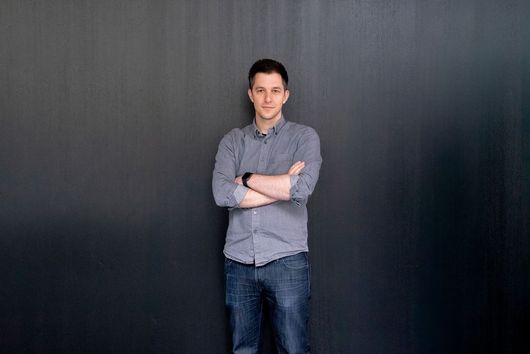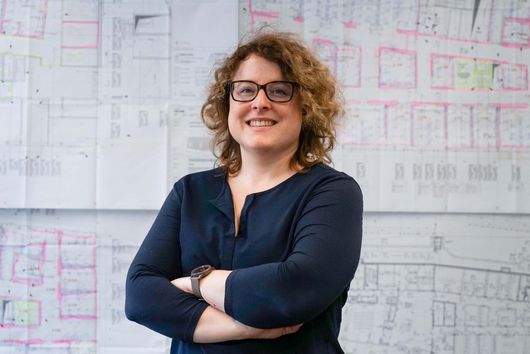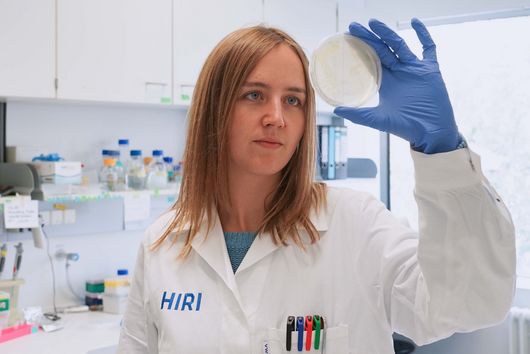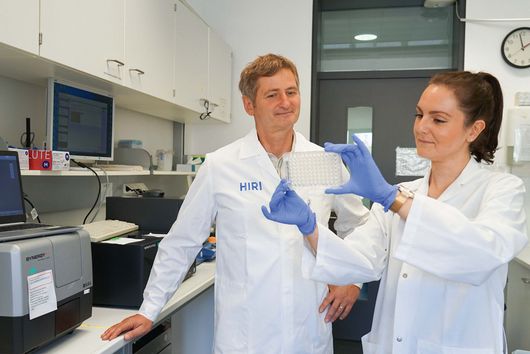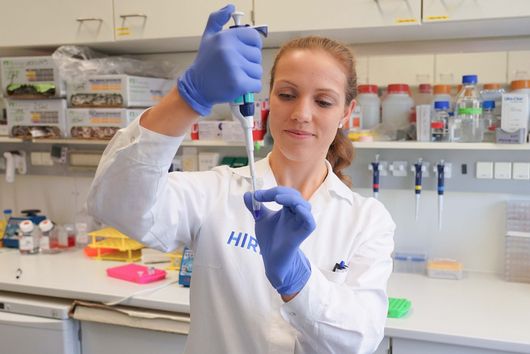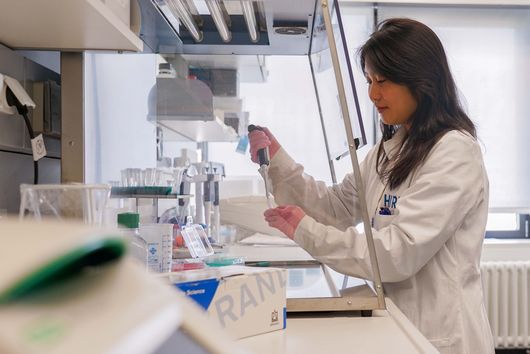
Curiosity as a driving force
Since 2021, Hoda Kooshapour has been a PhD student in the graduate training program “RNA & Infection” at the Helmholtz Institute Würzburg (HIRI). Her research focuses on bacterial small ribonucleic acids (sRNAs) and their role in host-microbe interactions, which she finds particularly fascinating.
“If there is one thing that all scientists have in common, it probably is curiosity,” says HIRI PhD student Hoda Kooshapour. “The pursuit of scientific knowledge becomes even more exhilarating when we explore the wonders of the universe, such as our own galaxy, or venture into the microscopic realm. Science provides us with the tools and knowledge necessary to understand these phenomena. That’s really exciting,” elaborates Hoda, who also enjoys watching standup comedy shows in her spare time. Still, the young researcher has a particular fondness for RNA biology.
She discovered this passion during her MSc in biology at the Ludwig-Maximilians-Universität in Munich. “We were able to attend lectures from a wide range of disciplines,” she explains. During classes and internships in neuroscience, stem cell biology, and bio-imaging, Hoda discovered that the smaller the subject, the greater her interest. “That's how I eventually delved into the field of cell biology,” she says. One molecule, in particular, captivated her: “Whether I was working on stem, nerve, or immune cells, in all these projects I was most interested in RNAs—especially the non-coding ones.”
She is now devoting her PhD at HIRI to bacterial small RNAs. These molecules mostly fine-tune gene expression. “While these sRNAs collectively play a significant role in regulating gene expression, finding their targets is challenging,” the HIRI scientist explains. In order to identify them, researchers have to carry out a large number of experiments. To simplify this process, Hoda is working on a computer-based decision tool. It combines data from different experiments to generate the top candidates that are likely to be such targets.
One institute, many benefits
Hoda first became aware of the HIRI through an internet search: “I already knew that I wanted to stay in Germany for my PhD, so I searched for ‘non-coding RNA’ and ‘Germany.’” One of the hits was the lab of HIRI group leader Mathias Munschauer, whom she contacted by email. “He then recommended the HIRI graduate program ‘RNA & Infection’ to me.” This was a real stroke of luck because the Würzburg-based Helmholtz Institute and its graduate program had several advantages: “The institute conducts cutting-edge research,” says the doctoral student. “The research group leaders are young and really passionate about what they're doing.” In addition, the HIRI covers a wide range of technologies and topics. “You hardly find all that collectively anywhere else,” she describes.
Another big plus was the opportunity to rotate through three labs first. Thus, prospective students do not apply for a specific lab and topic, as is the case with other programs. “This way, you can get to know the lab, the science, and the people before you decide where you're going to spend the next three to four years of your life.” According to Hoda, you need two essential things for a good PhD: a promising project you're passionate about and a supportive supervisor. She found both in Alexander Westermann and his lab.
A small yet big city
In order to become part of the HIRI graduate program, Hoda moved from Munich, the capital of Bavaria, to Würzburg in Lower Franconia. A welcome change for her: “I came from big and crazy Munich to beautiful and relaxed Würzburg.” She found it easy to settle into the vibrant university town, perhaps also because of the good atmosphere at the institute: “At HIRI, I felt welcomed: There is a true sense of community among the PhD students. We support and help each other.”
She is particularly taken with the vineyards surrounding the city. “There is always something beautiful no matter where you look,” she says of the view. Her recommendation to all new residents is to get a bottle of the delicious local wine and relax on the banks of the Main river or in the vineyards.









